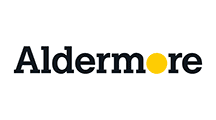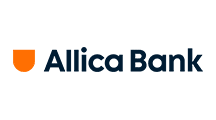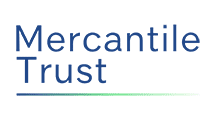Can I get auction finance?
Getting auction finance is relatively straightforward. The product you can use is a bridging loan. They are faster than mortgages to arrange, which is why they are suited to auction purchases. Apply ahead of the auction, so you know how much you can bid on the day.
You can borrow up to 75% of the property price, so having an idea of the price the property could reach, or the amount you are prepared to pay for it, will help us arrange the amount you need.
Factors that may impact you getting auction finance
- Some types of poor credit
- Not having enough money for a deposit
If you have questions, chat to our advisors on live chat, via the phone, or get a call-back we're here to help.
Today's auction finance rates
You can use our auction finance calculator to compare today’s interest rates for auction finance purchases.
Eligibility for auction finance
- First time buyers to experienced landlords
- You must be at least 18 years old
- Minimum deposit 20% of the property value
- Upper age limit at application are flexible
- Low personal incomes are accepted
- Property, pension and employment is OK
Ready to get started?
Your personal advisor will call. Direct lines start 01603. Get today's rates, help, or apply. Lender terms provided in as little as two hours!

Working in partnership with Auction House
Commercial Trust has teamed up with Auction House, the UK’s leading property auctioneer. Auction House UK operates over 40 auctions rooms nationwide, holding in excess of 200 auctions and selling over 3,000 residential and commercial properties every single year.
What is auction finance?
Auction finance is a term that describes a type of bridging loan, used to purchase properties at auction.
To get auction finance, you will need a deposit of at least 20-25% of the property value of your own money, and you will need to plan your exit strategy (how you will pay back the borrowing).
If you don’t have cash available for a deposit, you can raise the funds from equity in other property you own.
When should I arrange finance for an auction?
Auctioneers typically require settlement of costs within 28 days of the hammer falling, so it is practical to arrange finance before you go to an auction to buy property.
By doing this, you know the maximum bid you can make during the auction, based on the borrowing you can achieve.
You could arrange a loan immediately after an auction, however, you risk not being able to achieve the borrowing you need and losing the on-the-day costs from the auctioneer - typically 5-10% of the property price.
How do you pay back auction finance?
The way you repay property auction finance is called your “exit strategy”. So, if you are “flipping property” (buying it, doing property renovations and selling to make a profit) the funds from the sale of the property is your exit strategy.
Similarly, if you are taking out auction finance for a property you will go on to rent out to residential tenants your exit strategy could be to take out a buy to let mortgage.
On a property intended for business use, your exit strategy could be to use a commercial mortgage.
When you “exit” auction finance to a buy to let or commercial mortgage, you use the new mortgage to pay off the loan.
You typically can’t buy at auction and use these longer-term forms of borrowing to pay the auctioneer, because mortgages take longer to arrange.
Given auction finance is typically more expensive than a mortgage, it is vital to have an exit plan in place at around the same time you take out the auction finance product.
We can help you get auction finance and we can help you get a buy to let mortgage or commercial mortgage, if you need one.
So, if you want to exit to a buy to let or commercial mortgage, we will start looking for a suitable product at the same time as we look for your auction finance product. By doing this we can help ensure you have a clear way to pay off the loan.
We work with a wide range of auction finance lenders, including:
Why choose Commercial Trust?

Apply with ease by phone
It couldn't be easier to secure a buy to let mortgage with our expert advisors. Ask all your questions and arrange an application on the phone from your sofa.
World class customer service
We'll find you a great deal and take all the admin work off your shoulders, so you can relax while we get your mortgage completed. All the while giving you progress updates.
Lender decision in 2 hours
By contacting you by phone and email you can get help more quickly than in-person services. It's possible to get you a lender decision in principle in as little as two hours after our call.
We can help you with...
- Auction purchases for flipping property
- Auction purchase of land for development
- Auction purchase of uninhabitable property
- Auction purchase of below market value property
- Auction purchases for flipping property
- Auction purchase of land for development
- Borrowing up to 75% LTV, or more with extra security
- Loan terms from 3 to 24 months
- Investing in personal name
- Investing via a limited company or Special Purpose Vehicle
- Investing via a Limited Liability Partnership
- Serviced interest (paid monthly)
- Retained interest (paid at term end)
- Exit loan to buy to let, commercial mortgage or sale
- No minimum income options
- Flexible affordability calculations

"Even complex auction purchases can be simple with our help"
Bridging loans are strongly suited to buying property at auction. Get a deal lined up in advance, so you can bid with confidence on the day of the sale.
Read moreCosts involved in a buy to let mortgage
Lenders may charge you for the valuation conducted on your property. They often also charge a product fee, sometimes this can be added to the loan.
You will need a conveyancing solicitor who will charge fees. Read our guide to choosing a conveyancing solicitor.
We charge a broker fee for our work. You pay in two parts. A booking fee, once we have found you a mortgage deal, at application. The majority of our fee is paid at completion of the loan.
Every mortgage comes with monthly mortgage costs based on the mortgage interest rate the lender charges. These are paid on either an interest-only or capital repayment basis.
How to apply for auction finance
1
Tell our advisors about the property you are investing in, your needs and circumstances. If you have credit concerns, chat to us about them, so we can put you with the right lender.
2
Your advisor will find the best possible deal from a search of thousands of products. They will get you a lender decision in principle, this requires a soft credit search (occasionally it is a hard credit search).
3
Your advisor will call to discuss the product they have found for you. You will be presented with one mortgage, that is the best match for all your needs and offers you the most cost effective option.
4
On your instruction, your advisor will submit your mortgage application. Your account manager then does all liaison and administrative work to complete the deal, whilst keeping you updated at every step.
What our clients say about us
Frequently asked questions
Yes, this is a common use for bridging loans. You usually have to settle the full amount owed on an auction property within 28-day time frame, which is not enough time to arrange a conventional mortgage.
After you have paid the deposit, a property auction loan can quickly fund the outstanding amount, ensuring you don’t lose the sale. You then have time to arrange longer-term funding (e.g. a buy to let mortgage or commercial mortgage).
This will depend on the value of the property you wish to purchase, your deposit amount, financial situation and credit history. You can borrow from £25,000 and there is no set upper limit, the maximum you can borrow will be dictated by the other factors mentioned.
Generally speaking, the loan to value (LTV) on a bridging loan is up to a maximum 75%, which would mean you would need a deposit of 25% of the property value.
If you have other property available equity that you can use as security, you may be able to borrow against it to raise a deposit.
Auction finance is widely available for individuals or businesses that have a deposit and can afford the monthly payments. Lenders will look at your exit strategy (how you intend to pay back the loan), credit history, income, and other financial information to determine your eligibility.
Auction finance is a type of loan that is specifically designed to help you buy properties at auction. It is a short-term financing solution that allows you to borrow money much faster (compared to standard mortgage loans), for specific needs.
It is sensible to arrange auction finance ahead of the auction day, with the help of a broker, who can find a product best suited to you. Let your broker know the maximum you want to pay for the property and they can help with the rest. That way, when you are bidding, you know you have the finance in place to secure the property.
Interest rates for property auction finance can vary, depending on a range of factors, including the lender you choose, the amount you would like to borrow, and the term of the loan. It’s important to shop around and compare rates from different lenders before making a decision.
A specialist broker will have access to a huge range of lenders and can do all this due diligence for you. They will find you a deal that matches your needs and circumstances, whilst also ensuring it is the most cost effective product they can find for you.
The approval process for property auction finance can vary, depending on the lender. Some lenders may be able to approve your loan application in a matter of hours, while others may take several days. It’s important to allow enough time to get approved before the auction date.
If you are short on time, when you speak to a broker, let them know. They will know which lenders can turn around a deal quickly and so will factor that in when searching the market for the right product for you.
Repayment terms for property auction finance vary based on whether you opt to pay monthly or at the end of the term of the loan. If you opt to pay monthly, this is a “serviced” loan. If you pay the interest at the end of the term when you pay off the lump sum you borrowed, this is a “retained interest” loan.
There may be additional fees associated with property auction finance, such as arrangements fees, valuation fees, and legal fees.
It’s important to carefully review the terms and conditions of your loan agreement to understand any fees that may be associated with the loan. When you work with a broker, they will make clear all the costs associated with the auction finance product they recommend to you, and they will ensure it is affordable for you.








